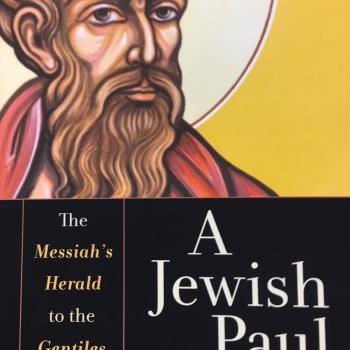Dear Rabbi, If you were to offer your own set of Ten Commandments, what would they be?
I am not interested in commandments as much as insights. So I would offer Ten Insights. And since I am not merely a student of Torah but a lover of Torah I would couch my Ten Insights in terms of Torah:
- Tohu va–vohu (Genesis 1:1). In the beginning of the creation the universe is tohu va-vohu, chaotic and unformed. Everything is a riot of risings and fallings. Nothing is stable or permanent. Torah is not unique in its assessment of “the beginning,” many traditions speak of a primordial chaos. What makes Torah stand out is its refusal to slay chaos in the process of creation. God doesn’t still the wildness or subdue it. God simply calls creation out from the midst of it, or better: out in the midst of it. Creation is not the opposite of chaos, merely an expression of it.
- Havel havalim (Ecclesiastes 1:2). Everything is impermanent, transient, no more substantial than morning dew. Nothing lasts, and everything in the process of becoming something else, often its very opposite. There is no way to stop this process, and all efforts to do so end in heightened anxiety and an ever–deepening exhaustion. One must learn to ride the chaos, navigate the impermanence, and live one’s dying with grace.
- Ehyeh asher Ehyeh. (Exodus 3:14). Asked by Moses to reveal the nature of divinity, God replies, Ehyeh asher Ehyeh, “I am becoming what ever I am becoming.” God no less than creation is a process of becoming other. God no less than creation is changing. God cannot be defined; even God doesn’t know God! Definitions give us the illusion of solidity and permanence, when in fact neither exists. There is only endless creativity, endless change, endless experimentation.
- Oseh shalom u’voray rah (Isaiah 45:7). “I (YHVH) create peace and fashion evil.” YHVH (from the Hebrew verb “to be”) is another way Torah reminds us that God is the process manifesting all possibility: light and dark, good and evil. Nothing is alien to God for nothing is other than God.
- N’kabayl tov v’rah (Job 2:10). When challenged by his wife to curse God and die rather than suffer the inequities God has heaped upon him, Job explains that we should learn to “receive good and evil from God.” It isn’t that God sends one rather than the other, but that God sends everything. This is what Moses is telling us in Deuteronomy 30:19: “I set before you living and dying, blessing and cursing. You shall choose life, so that you and your offspring will live.” Choosing life is choosing to live with birth and death, blessings and curses. The key is to learn to live with these in a way that allows you to live well. You task is to live wisely and teach your descendants to do the same.
- Lech Lecha (Genesis 3:1–3). Because God is everything and everything is forever in flux, there is nothing fixed to which we can cling. On the contrary, clinging keeps us from living as God intends. God calls to us to nonclinging saying: “Lech lecha: walk outwardly (lech) and inwardly (lecha) in a manner that frees you from clinging to the conditioning of nationality, ethnicity, and family (to these I would add race, gender, sexual orientation, class, religion, every label we pin to our lapels or have pinned to us) so that you might see the world as I (God) wish you to see it: whole and holy. And you shall grow strong in this realization, and in this way become a blessing to all the families of the earth, human and otherwise.”
- Ve–ahavta l’rayecha k’mocha (Leviticus 19:18; 19:34). Love your neighbor and the stranger as yourself. The key here isn’t “love” but “self.” You will love both neighbor and stranger when you know them both to be yourself. Everything is an expression of the one thing, Ehyeh, the singular happening of all reality, YHVH. You, your neighbor, the stranger are each the happening of Ehyeh. You are all of one self. When you know this self, love, justice and compassion arise spontaneously.
- Ahsot mishpat (Micah 6:8). “Do Justly, love mercy, and walk humbly with your God.” Do justly and see that all life is treated with dignity and respect. Love mercy and see that all life is trapped in its delusions and compulsions, and have compassion on self and others for we do what we do because at the moment we can do nothing else. And walk humbly with your God knowing that your idea of God isn’t God for God isn’t a thing to be named and known, but the ever–changing Ehyeh that is reality itself.
- Ain od milchamah (Micah 4:3–5). Here is Torah’s hope that someday when we are free from the delusional conditioning that imagines a zero–sum world of allies and enemies, makers and takers, winners and losers we will cease to make war and study war, and instead see that everyone has enough to eat and drink and a place to live, and that fear is banished and with it all hate as well.
- Simcha (Ecclesiastes 9:7–10). Joy. This is your task: to eat simply, to drink moderately, to work joyously, to cultivate loving friendships, and to create a society in which everyone else can do the same.















